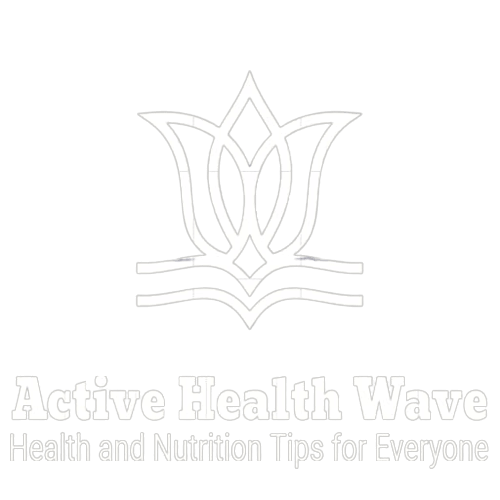The heart is a remarkable organ, tirelessly pumping blood to nourish the body’s cells with […]
The heart is a remarkable organ, tirelessly pumping blood to nourish the body’s cells with oxygen and nutrients. To keep this vital pump running smoothly and efficiently, it’s essential to maintain a heart-healthy diet. In this comprehensive guide, we will explore the best foods for a healthy heart and delve into the benefits of key nutrients they provide.
Omega-3 Fatty Acids
Omega-3 fatty acids are a type of polyunsaturated fat that offers a multitude of benefits for heart health:
- Reduced Inflammation: Omega-3s possess anti-inflammatory properties that help reduce inflammation in blood vessels and lower the risk of cardiovascular diseases.

- Lowered Triglycerides: They can lower triglyceride levels, a type of fat in the bloodstream associated with heart disease.
- Improved Heart Rhythm: Omega-3s help stabilize heart rhythms, reducing the risk of arrhythmias.
Foods rich in omega-3 fatty acids include fatty fish like salmon, mackerel, and trout, as well as flaxseeds, chia seeds, and walnuts.
Fiber
Dietary fiber is known for its heart-healthy benefits:
- Cholesterol Control: Soluble fiber found in oats, beans, and lentils can help lower LDL (bad) cholesterol levels.
- Blood Pressure Regulation: A diet high in fiber from fruits and vegetables has been linked to lower blood pressure, reducing the risk of hypertension.
- Weight Management: Fiber-rich foods promote feelings of fullness, aiding in weight management. Maintaining a healthy weight is crucial for heart health.
Excellent sources of fiber include whole grains, legumes, fruits, and vegetables.
Antioxidants
Antioxidants, such as vitamins C and E, and compounds like flavonoids and polyphenols, help protect the heart by neutralizing harmful free radicals:
- Reduced Oxidative Stress: Antioxidants combat oxidative stress, which can damage blood vessels and increase the risk of heart disease.
- Improved Blood Flow: Some antioxidants, like flavonoids found in dark chocolate and berries, promote vasodilation, improving blood flow and reducing blood pressure.
- Arterial Health: Antioxidants support arterial health, reducing the risk of atherosclerosis (hardening of the arteries).
Foods rich in antioxidants include berries, citrus fruits, nuts, spinach, and dark chocolate (in moderation).
Potassium
Potassium is an essential mineral with several heart-protective benefits:Blood Pressure Regulation: Adequate potassium intake helps maintain healthy blood pressure levels by balancing sodium levels in the body.
- Reduced Risk of Stroke: Potassium-rich foods are associated with a lower risk of stroke, a major cardiovascular event.
- Improved Heart Rhythm: Potassium is vital for maintaining a regular heart rhythm.
Bananas, oranges, potatoes, spinach, and beans are excellent sources of potassium.
Magnesium
Magnesium is a mineral that plays a significant role in heart health:
- Heart Muscle Function: It helps regulate heart muscle function and supports a steady heartbeat.
- Blood Pressure Management: Adequate magnesium intake is linked to lower blood pressure levels.
- Anti-Arrhythmic Effects: Magnesium can reduce the risk of arrhythmias.
You can find magnesium in foods like almonds, spinach, whole grains, and avocados.
Phytosterols
Phytosterols are plant compounds that resemble cholesterol and can help lower LDL cholesterol levels:
- Cholesterol Reduction: Phytosterols compete with dietary cholesterol for absorption in the intestines, leading to lower LDL cholesterol levels.
- Reduced Atherosclerosis Risk: Lower LDL cholesterol levels decrease the risk of atherosclerosis and coronary artery disease.
Phytosterols are naturally present in nuts, seeds, vegetable oils, and whole grains.
Potent Flavonoids
Flavonoids are a subgroup of antioxidants found in various foods and beverages:
- Improved Blood Vessel Function: Flavonoids improve blood vessel function, promoting healthy blood flow.
- Blood Pressure Regulation: They can help regulate blood pressure and reduce hypertension risk.
- Reduced Inflammation: Some flavonoids possess anti-inflammatory properties.
Foods rich in flavonoids include berries, citrus fruits, tea, red wine (in moderation), and dark chocolate.
Lean Protein
Lean protein sources, such as poultry, fish, and legumes, offer heart-healthy advantages:
- Weight Management: Lean protein helps maintain a healthy weight, reducing the risk of obesity-related heart diseases.
- Cholesterol Control: Replacing saturated fats with lean protein can lower LDL cholesterol levels.
- Balanced Nutrition: A diet rich in lean protein supports overall nutritional balance, which is crucial for heart health.
Whole Grains
Whole grains are a staple of heart-healthy eating:
- Lowered Cholesterol: Whole grains are rich in soluble fiber, which can lower LDL cholesterol levels.
- Blood Sugar Control: They help regulate blood sugar levels, reducing the risk of diabetes-related heart problems.
- Nutrient Density: Whole grains provide essential nutrients like B vitamins and magnesium.
Opt for whole grain options like brown rice, quinoa, whole wheat pasta, and oats.
Healthy Fats
While saturated and trans fats should be limited, healthy fats like monounsaturated and polyunsaturated fats offer heart benefits:
- Cholesterol Management: Healthy fats can improve the ratio of HDL (good) to LDL (bad) cholesterol.
- Inflammation Reduction: Omega-3 fatty acids found in healthy fats have anti-inflammatory properties.
- Nutrient Absorption: Healthy fats aid in the absorption of fat-soluble vitamins like A, D, E, and K.
Healthy fat sources include avocados, olive oil, nuts, seeds, and fatty fish.
A heart-healthy diet is a powerful tool for maintaining cardiovascular wellness. The foods listed above, rich in omega-3 fatty acids, fiber, antioxidants, potassium, magnesium, phytosterols, flavonoids, lean protein, whole grains, and healthy fats, can collectively support a healthy heart.
To maximize the benefits, it’s essential to adopt a balanced and varied diet that includes a wide range of these heart-healthy foods. Additionally, a heart-healthy lifestyle should encompass regular physical activity, maintaining a healthy weight, and avoiding smoking and excessive alcohol consumption. By prioritizing these dietary and lifestyle choices, you can nourish your heart and enjoy a longer, healthier life.













